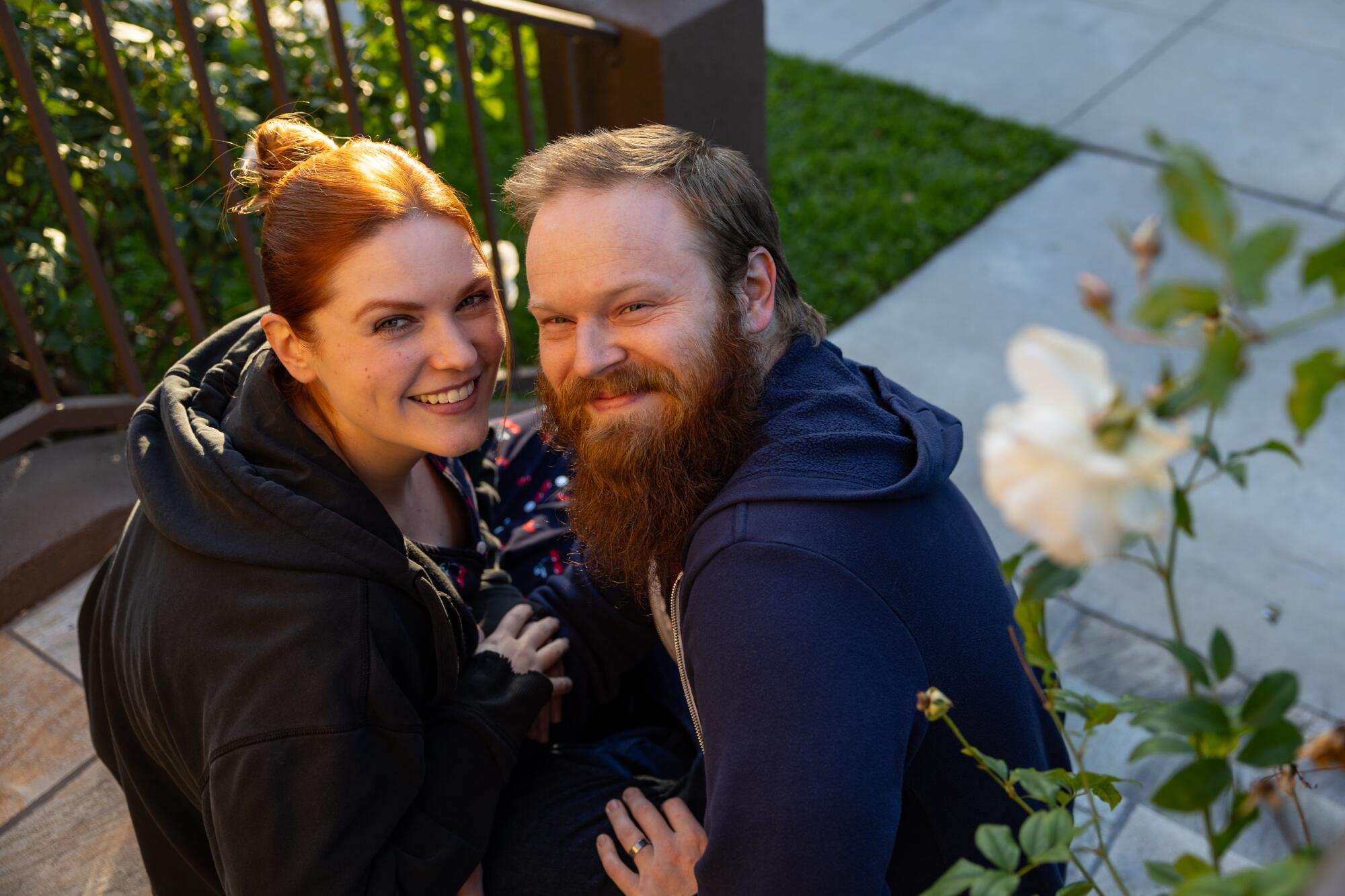
During their daily walk a few years ago, a Burbank couple brainstormed baby names, settling on one option for a boy and another for a girl.
But the names never got used.
After several conversations and scrutiny of their life goals and monthly budget, Beccy Quinn and Xavier Coelho-Kostolny decided last year to join the growing cohort of Americans who describe themselves as child-free by choice.
Their discussions hinged on two questions: Will we still be able to invest as much time in the relationships we already value? And, if we have a child, can we still live comfortably in the city we love and save enough for travel and retirement?
The answer to both was no.
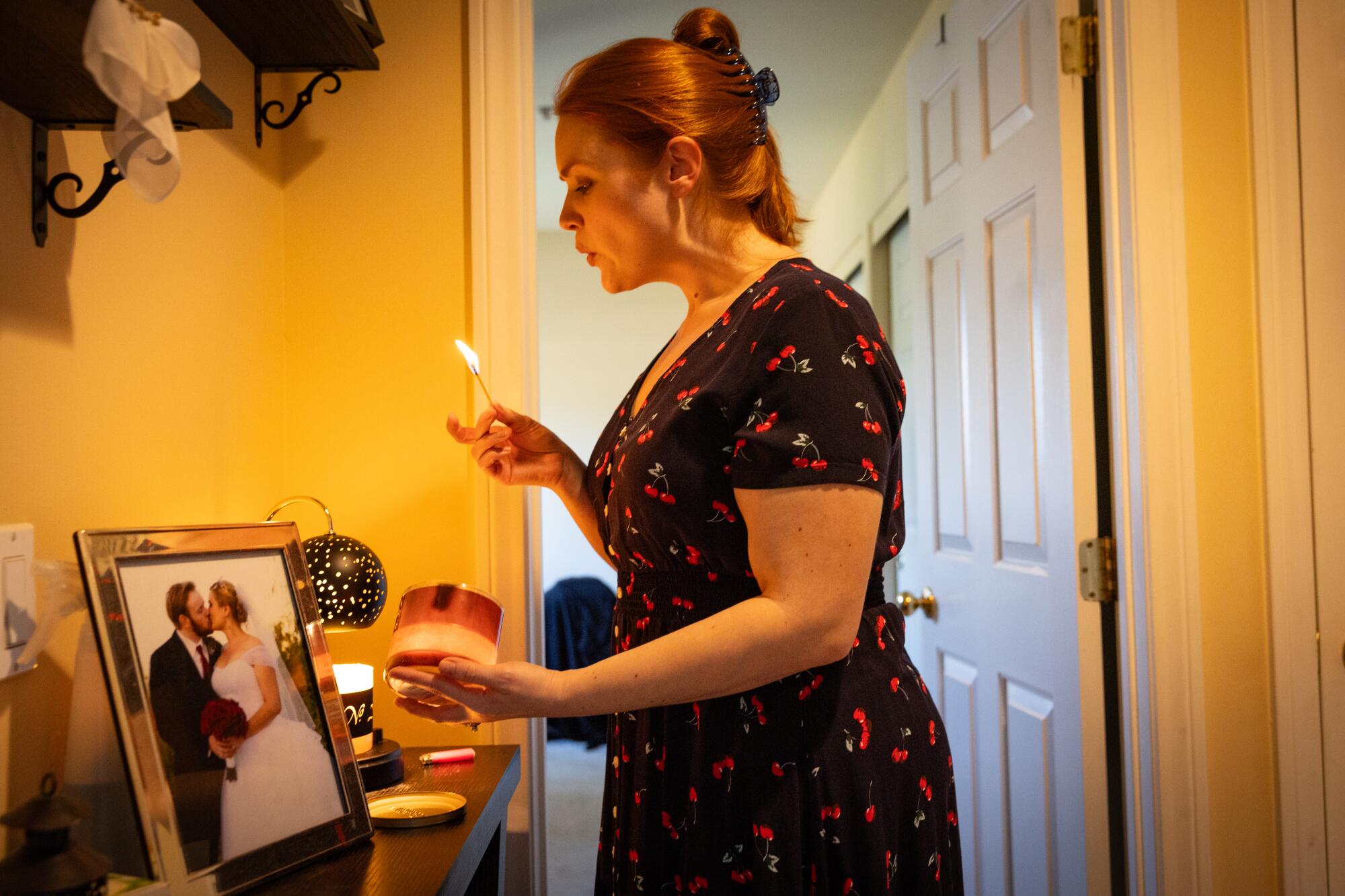
Coelho-Kostolny, 36, designs 3-D models for video games, and Quinn, 35, works as an actor and writer, and although they earned a combined income of nearly $200,000 last year, her salary fluctuates each year. The couple expect to help care for Quinn’s parents down the road, and they already feel behind on a retirement goal they’ve read online: Aim to save five times your annual salary by age 40.
“It’s just impossible,” Coehlo-Kostolny said, exasperated. “I’m pretty sure I’m just gonna work until I die.”
Quinn, who manages the couple’s monthly budget, assured him that they’re doing better than he thinks, but agreed that having a child would make it extremely challenging. The cost of day care alone, she said, would eclipse her salary some years.
“I would have had to quit.”
Birthrates have been trending downward in the U.S. for several decades, but they dropped even more precipitously during the pandemic, a time of profound uncertainty when parents juggled jobs, as well as full-time caregiving and teaching roles. After a small rebound, they’re now down again.
More than a quarter million fewer babies were born in the U.S. in 2022 than in 2012, according to the most recent finalized data from the Centers for Disease Control and Prevention.
A phenomenon across much of the world, the falling birth rate has sweeping implications on the global economy, prompting Taiwan to spend more than $3 billion on child-rearing initiatives and leaders in several countries to create so-called baby bonuses.

Subscribers get exclusive access to this story
We’re offering L.A. Times subscribers special access to our best journalism. Thank you for your support.
Explore more Subscriber Exclusive content.
California Gov. Gavin Newsom highlighted declining fertility rates as a structural risk in his 2022-23 budget, saying they could have “both significant societal and labor force repercussions for the coming years.”
A recent Pew study of adults who said they weren’t likely to have children found that a majority of respondents gave a straightforward reason — they “just don’t want to.”
But of those who cited a specific factor, financial reasons was one of the most popular answers. Age and medical reasons were the top reasons. Among parents younger than 40 who said they didn’t plan to have any more children, more than a quarter of respondents cited financial concerns.
And it is more expensive than ever to raise a child in the U.S.
“I wanted these things that often feel luxurious for women, like time, like rest, like money. It’s really about a celebration of a choice.”
— Rachel Cargle, writer and entrepreneur living in Ohio
It now costs $310,605, on average, to raise them from birth to 17, based on a Brookings Institution analysis that took U.S. Department of Agriculture data from a few years earlier and accounted for inflation for a middle-class family. (That figure doesn’t include what parents spend on college and helping a child settle into adulthood.)
Birthrates tend to shift along class lines. A recent CDC report found that Americans with lower levels of education — often a proxy for earning less — were more likely to have more children than those with higher levels of education. Wealthier Americans, the data show, were also more likely to have their first child later in life.
For millennials such as Quinn and Coelho-Kostolny, a generation saddled with astronomical student debt, and Gen Z-ers, who entered adulthood to a sky-high housing market, discussions about finances seem to come up far more often and directly in conversations about whether to have children than they did among earlier generations, said Amy Blackstone, a sociology professor at the University of Maine, who has studied the topic for more than decade.
“I hear that louder and clearer now,” said Blackstone, who wrote a book called “Childfree by Choice.”
Although some people have always opted out of parenthood, Blackstone said the child-free by choice movement, to which she and her husband belong, gained momentum in the 1970s — a confluence of second-wave feminism, the increased availability of birth control and a push among some environmentalists for the so-called zero-population growth movement.
There was another surge of public interest during the Great Recession of 2007-09, she said, when birthrates dropped, as they often do during economic downturns. The rates took another hit during the COVID-19 pandemic, a time, Blackstone said, that revealed massive cracks in our social safety net, especially for parents.
For Rachel Cargle, a writer and entrepreneur who lives in Ohio, getting an up-close view of just how overextended most parents are was one factor in her decision not to have children.
While working as a live-in nanny in Washington, D.C., and New York in her 20s, she studied the families for whom she worked. They were fairly wealthy, she said, and even still she could see the immense stress.
“They were on a hamster wheel,” she said.
Although she envies the youthful energy that courses through the homes of her friends with children, Cargle, now 35, said she has found deep peace in her decision to remain child-free. It has given her more time and ease to do things she loves, such as travel with her niece, swim laps and run a bookstore in her hometown of Akron.
She also created the popular child-free-by-choice Instagram account called Rich Auntie Supreme — part of a growing online community that stands as a counterweight of sorts to the wave of “traditional wife” influencers, tradwives, for short, who flood TikTok with videos of fresh-from-scratch recipes, advice about submitting to your husband and their children lined up by height.
“I wanted these things that often feel luxurious for women, like time, like rest, like money,” Cargle said. “It’s really about a celebration of a choice.”
Quinn and Coelho-Kostolny spent several years exploring that choice.
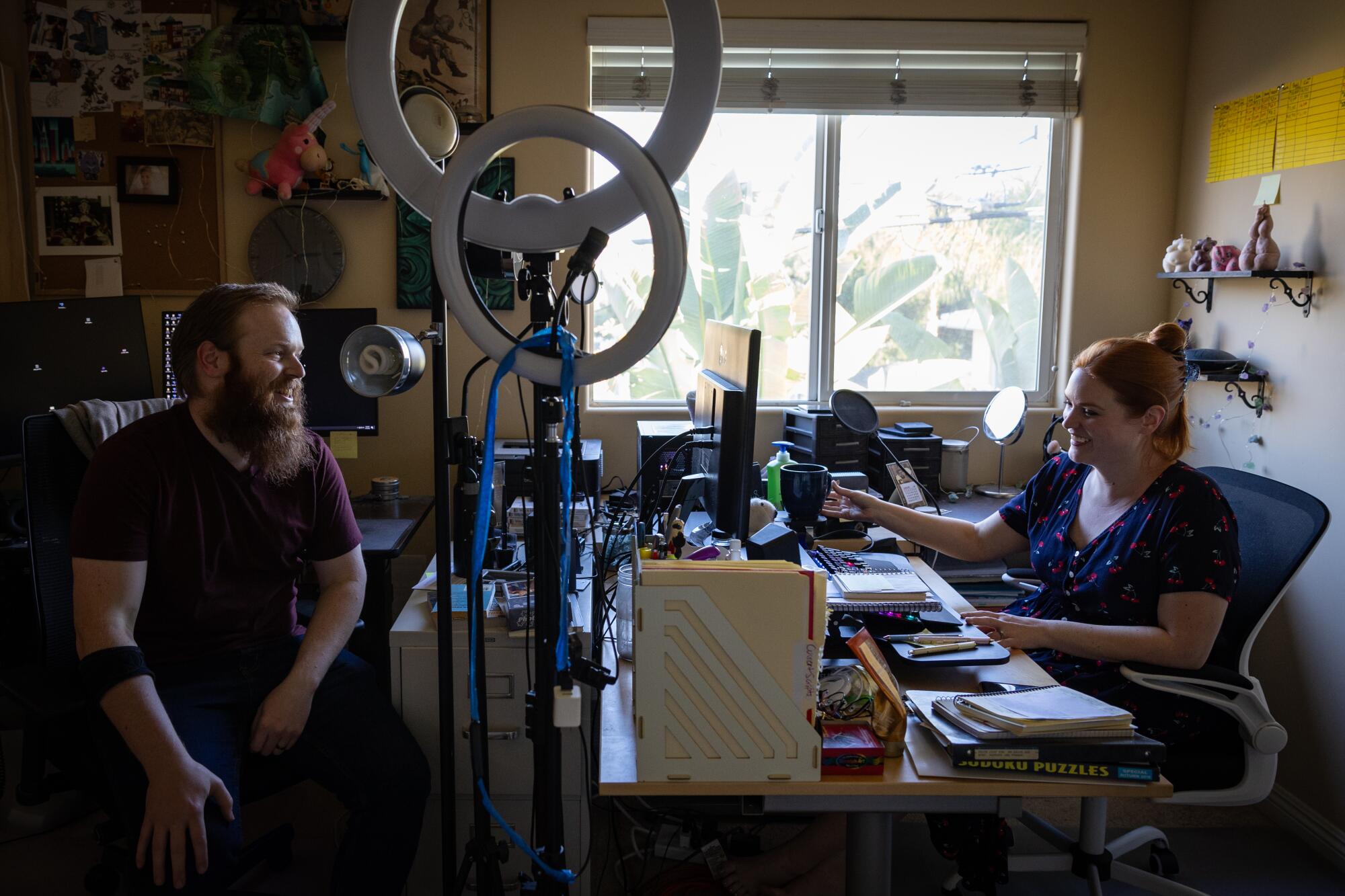
They had both assumed, earlier in life, that they would have children — not because the idea particularly excited them, but because society had all but meshed the identities of adulthood and parenthood.
As a girl growing up in Michigan, Quinn played M.A.S.H. with friends, a pencil-and paper game that claims to predict if you’ll live in a mansion, apartment, shack or house, as well as what car you’ll drive, who you’ll marry and how many children you’ll have.
“I was supposed to have 37 kids and live in a shack,” she said, laughing.
Coelho-Kostolny grew up in Napa Valley surrounded by a gaggle of five siblings and several cousins. In his late teens, he helped care for his nieces and nephews when they were sick and loved teaching them things.
“Kids are cool,” he said. “Weird little undeveloped humans that are like sponges.”
But he never felt a strong emotional pull to have kids of his own.
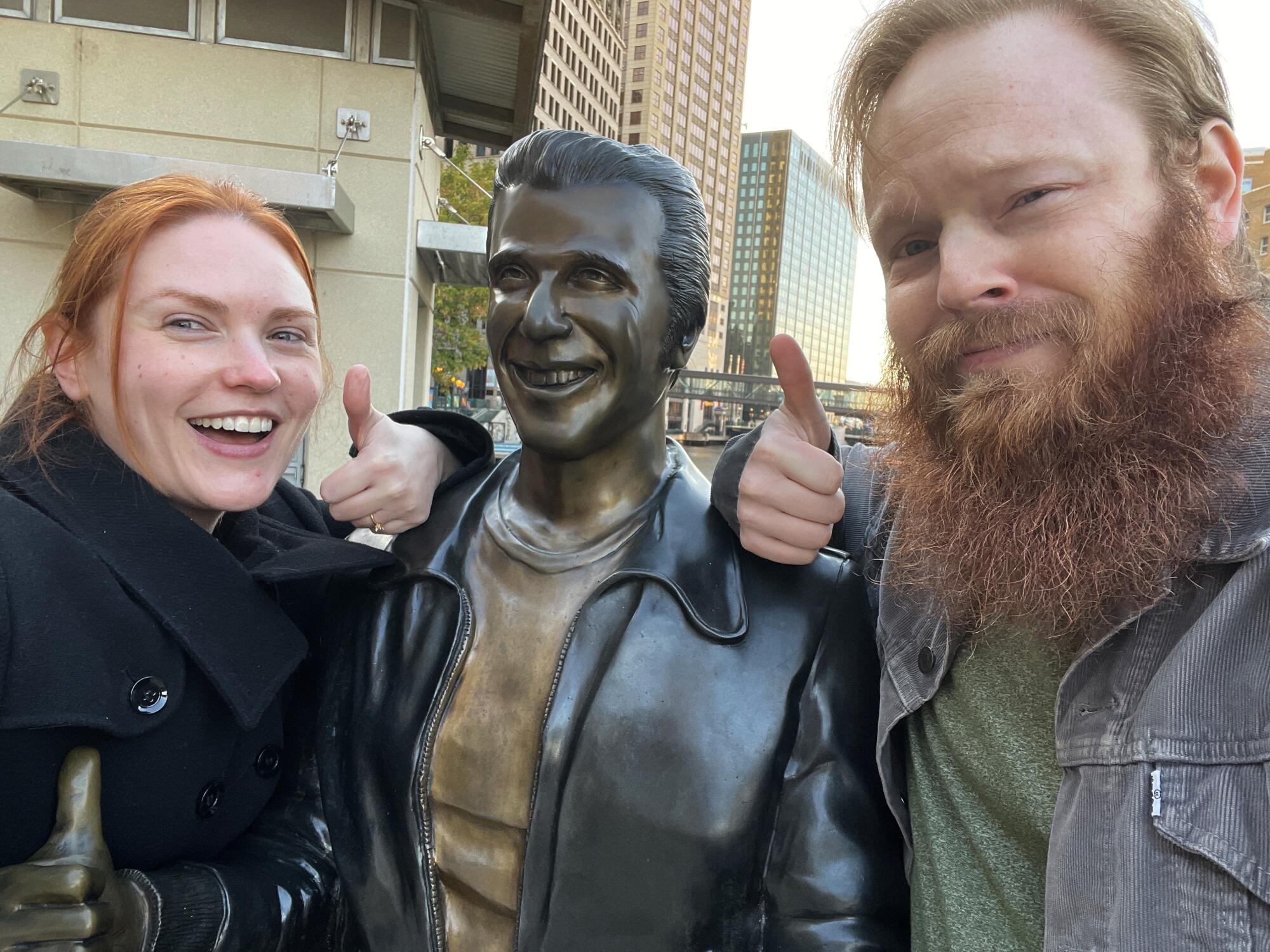
When the couple, who met through a mutual friend in San Francisco, announced their engagement on Facebook in 2013, they got a message from Coelho-Kostolny’s sister. It was a list of 35 questions couples should talk through before deciding whether to get married.
One question read, “Do you want to have children?”
Neither felt strongly in favor, but decided not to rule anything out — they described themselves, at that time, “as fence sitters.”
Soon after they got married in 2014, the couple relocated to Burbank for job opportunities. They eventually got a cat named Sofie and built a community among people who, like them, love to hike, cook and travel. Their close friends had a son and chose them as godparents.
They prioritized travel and adventure — swimming with dolphins in the Bahamas, skydiving at Lake Elsinore. On their eighth anniversary, for which bronze is the traditional gift, they posed in front of the “Bronze Fonz,” a metallic statue depicting the Happy Days character in Milwaukee.
Their lives felt full, but they still hadn’t made a final decision.
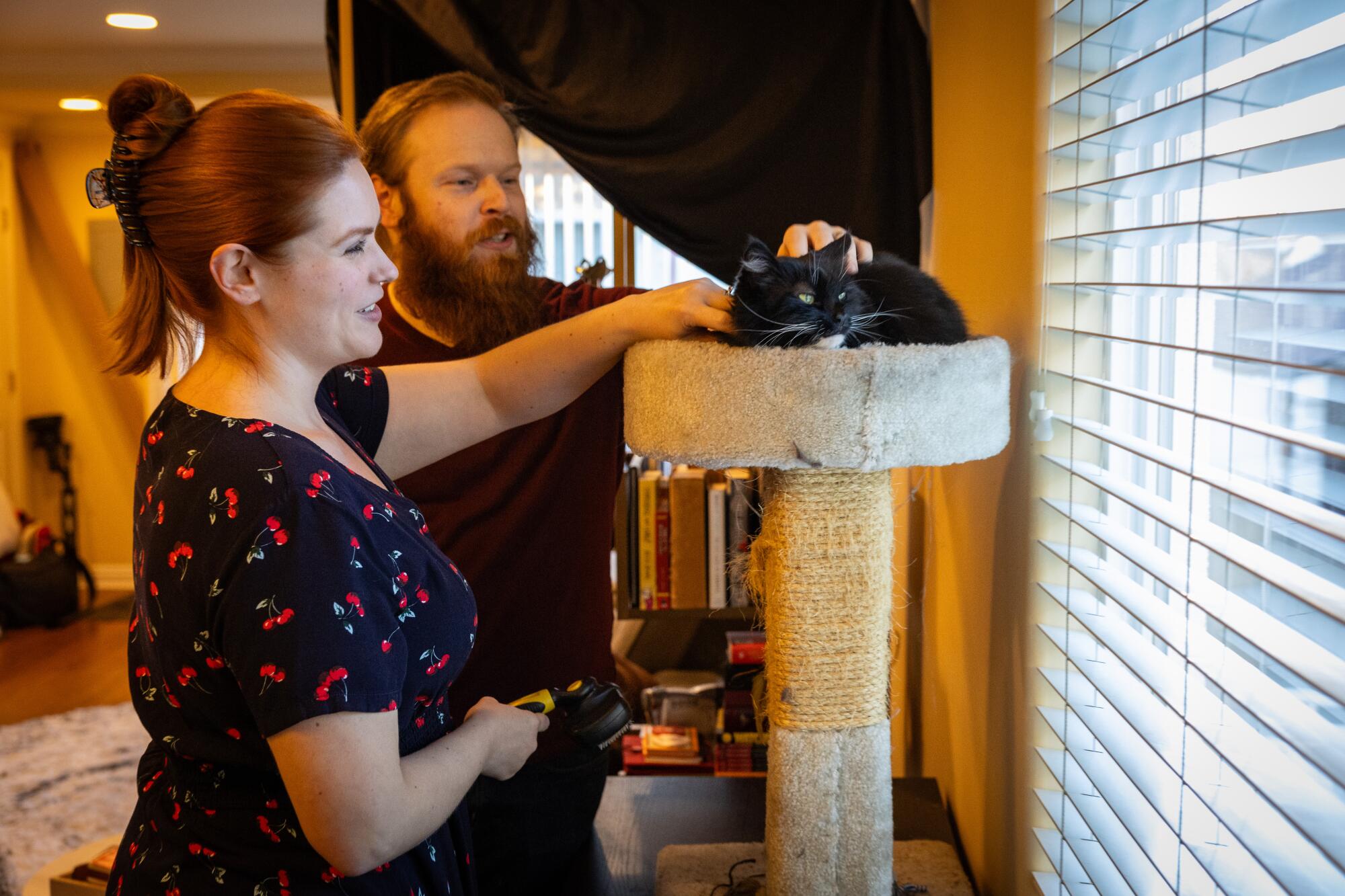
Through the years, Quinn had cycled through a series of emotions around the idea of parenthood, starting with apathy and then guilt. Her mother had only once mentioned that she dreamed of grandchildren, but society had instilled in her so much messaging about a woman’s worth being tied to motherhood. Eventually, her emotions pivoted to research.
She discussed it with her therapist, read a book called “The Baby Decision” and had deep conversations with friends who had children. By then, she had all but made up her mind, but worried about swaying her husband.
He was leaning that way too, especially when they considered finances.
Rent for their two-bedroom apartment was $2,400 a month, and they still had so many things they wanted to do such as tour the East Coast for a couple of months and attend Neotropolis, a festival in the Mojave Desert that they described as “Burning Man for really, really nerdy people.” They both hope to pursue further education, and Quinn still owes $11,000 in loans from her time at the Academy of Art in San Francisco.
The couple know they probably will help care for both Quinn’s mother and stepfather and her father and stepmother one day — a factor that they’ve considered in planning their finances, since it would require them to relocate to a larger home.
Around the time they made their decision, Quinn lighted a candle and said a few words in her mind while thinking of the two names — the boy’s name for her father and stepfather, and the girl’s name for a name her mother had considered giving her. A small, silent moment for a different life.
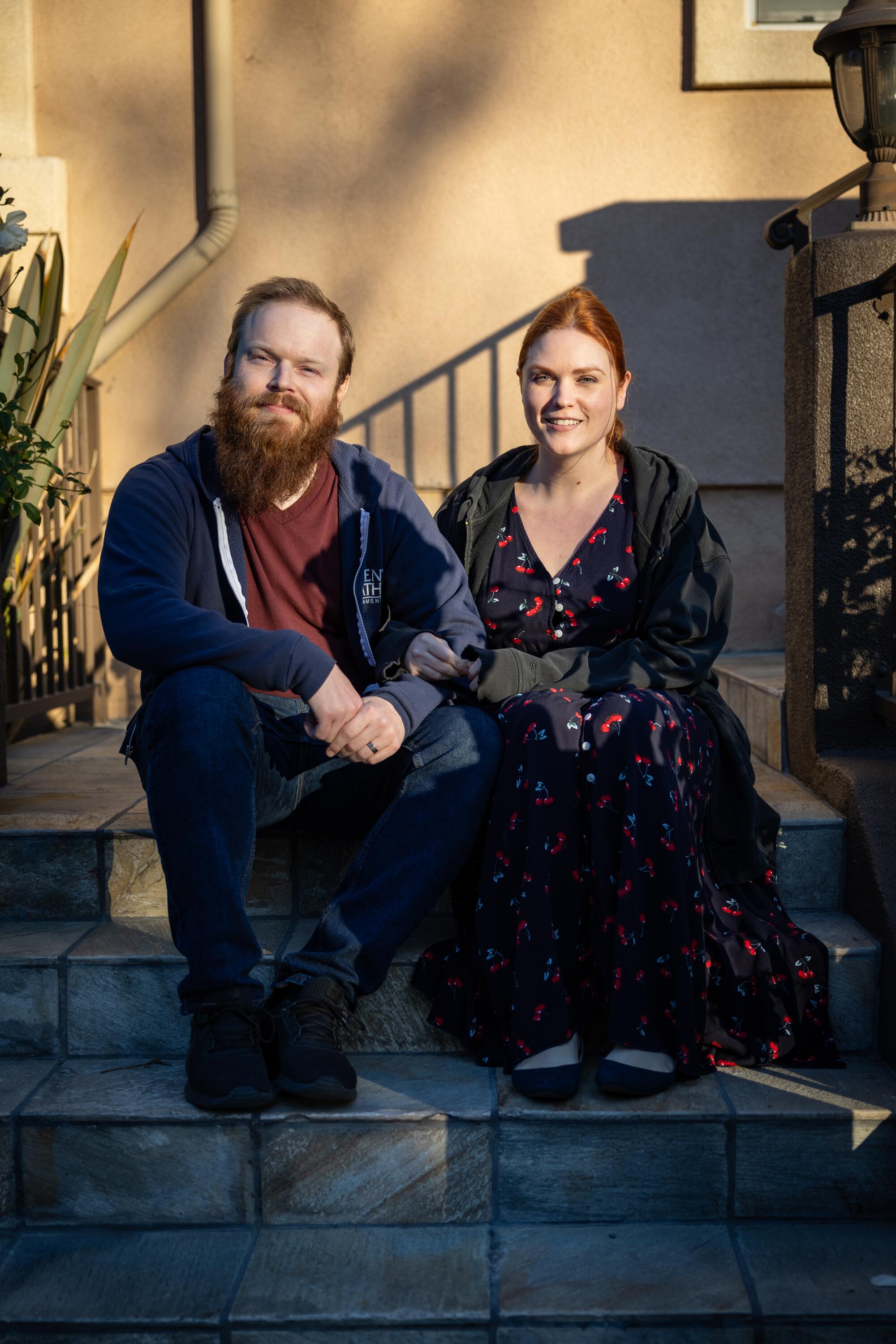
Before long, around his 36th birthday, Coelho-Kostolny scheduled a vasectomy.
Since the procedure, Quinn has had a few fleeting moments of panic in which she wonders if they made the right decision. But most of the time she feels deep freedom.
“I would rather regret not having children,” she said, “than regret having them.”
More to Read
Sign up for This Evening's Big Stories
Catch up on the day with the 7 biggest L.A. Times stories in your inbox every weekday evening.
You may occasionally receive promotional content from the Los Angeles Times.












